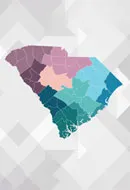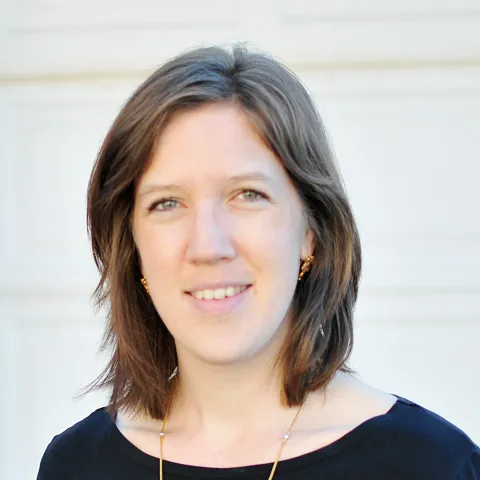The Extension for Community Healthcare Outcomes, known as Project ECHO, connects health care workers online for virtual discussions and case learning. In South Carolina, a Peer Support ECHO provides an online learning community for peer support specialists.
A Peer Support Specialist is a person with "lived experience" who has been trained to support those who struggle with mental health, psychological trauma, or substance use.
The collaborative nature of Project ECHO creates a support network for Peer Recovery in all fields. Using ECHO, peer support specialists share ideas and complete necessary training. Through case studies and didactic sessions this community shares knowledge and valuable insights to help others in their journey to recovery.
Jude Bauccio is a peer support specialist for the City of Myrtle Beach’s Opioid Response Program. She works alongside the city’s fire department to help people struggling with substance abuse. She also participates in ECHO sessions both as a listener and also a teacher.
“With ECHO I can learn so many things; it is a teach and learn atmosphere,” Bauccio said. “It is an atmosphere of community.”
For peer support specialists each person they help is different. Each person has their own battles, their own discord in life. To have a tool like project ECHO is important according to Mike Malone, project manager for Favor Upstate, a Recovery Community Organization based in Greenville.
“Peer recovery care is unique in that primarily the person delivering the care has shared this experience with addiction recovery before,” said Malone. “So, there is this connection and compassion that is unique and it benefits the patient to receive that kind of support from the peer support specialist.”
Favor Upstate collaborates with the Medical University of South Carolina to operate South Carolina’s Peer Recovery ECHO. Malone said Favor upstate and Project ECHO also helps peer support specialists complete continued education credits for recertification. This extends to the incarcerated population as well. Using ECHO, peer support supervisors like Nikki Lowder provide training to the inmate population that seeks to become peer support specialists.
Lowder works for the South Carolina Department of Corrections. She has trained 121 peer support specialists with the help of DAODAS (Department of Alcohol and other Drug Abuse Services) and strong collaboration from other vendors such as Favor Upstate.
“So, ECHO sessions help me because we have 54 peer support specialists in 10 institutions; so it's really hard for me to get to all of them,” Lowder said. “They have allowed us to open up the virtual meeting to our peer support specialists. They’re able to hear a case study and how individuals process and work through it – and are able to take that back to those that they work with. And it not only provides them education but also helps me because they get one hour of continued education.” said Lowder.
The collaboration of Project Echo creates a support network for Peer Recovery in all fields. Allowing ideas to be shared and training to be completed for new Peer Support Specialists. Using case studies and didactic sessions this community can share knowledge and valuable insights to help others in their journey to recovery.







